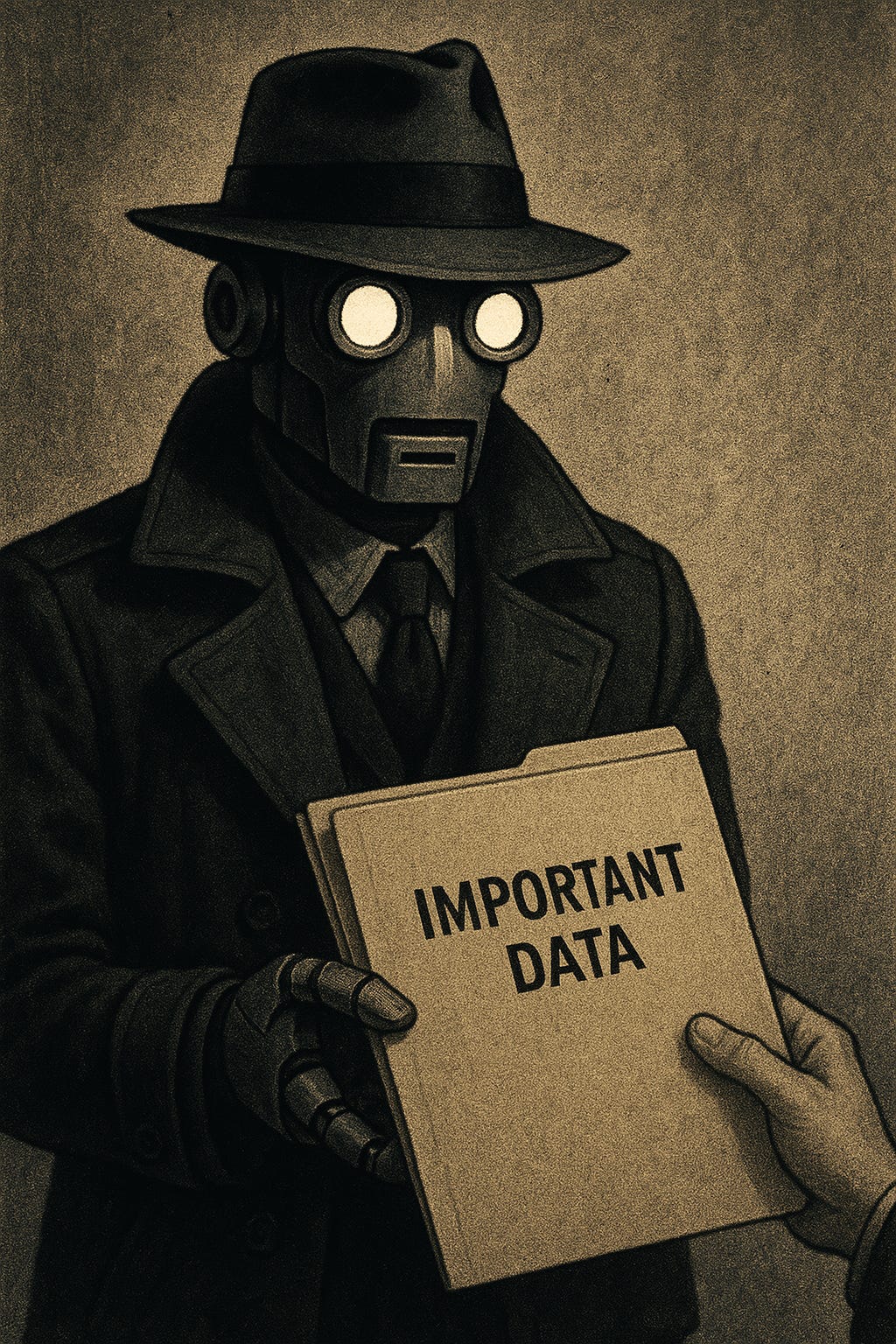What Does "Agentic" Actually Mean?
Everyone is suddenly saying "Agentic," but what will that mean for software?
The last couple of weeks I've been on a roadshow talking extensively with various software investors. The hot topic in every meeting is understanding how "agentic" technologies could disrupt or potentially enhance the SaaS businesses they own or are considering investing in. The conversations showed anxiety, and a little excitement too, about how the next generation of AI-powered agents could redefine software as we know it. So, let’s discuss what’s coming.
Imagining the Agentic Future
But what exactly does the future of "agentic" technology look like? Many of us—myself included—have hypothesized what the agentic revolution could be like. (See posts: here and here, for example). So what is an agent?
Picture having a sophisticated digital co-pilot integrated directly into your device—whether at work or at home. You simply ask it a question, and it goes off independently to fetch the answer or perform a task. On the simpler side, it might handle everyday tasks such as making dinner reservations or organizing your calendar. But on the more complex end, at work, imagine asking it to dive into your CRM and instantly highlight the best-performing salespeople for a specific product from last quarter, identify which department spent the most on events and travel, or even build a financial model to assess the potential impact of new tariffs on your supply chain.
So, think about the agentic world as having a few defining characteristics:
Interface that’s chat-based and open-ended; think of tasks that you today by sending an email or calling someone are now accomplished by asking your bot
A single tool that can coordinate across multiple applications or websites
The Impact on Software Consumption and Interface
If this vision truly becomes widespread, we're looking at a monumental shift in how software is consumed. Software will no longer be about building traditional user interfaces designed for humans. In fact, very few humans may directly interact with the software. Instead, software providers might need to design new types of interfaces tailored specifically for agents, enabling bots to easily access, interpret, and analyze underlying data. Every software company then has to decide if they will try to develop these agents themselves or allow players higher up the tech stack to dominate this new layer. LLMs are rapidly developing computer use tools like Operator. (Amazon and Anthropic have rolled out versions as well). Will they build this agent? Will it be a big platform like Microsoft or Salesforce? Or will there be vertical specific or horizontal winners that emerge? Or a new startup that nobody has heard of yet? It’s a bit hard to say at this point.
Rethinking Pricing Strategies
This transformation has profound implications for software businesses—particularly around pricing strategies. Traditional seat-based licensing becomes impractical in a world where bots, rather than humans, predominantly access the software. Companies will have to migrate to different pricing models, potentially shifting towards usage-based, API-call-based models, or other creative monetization strategies that reflect actual value delivered.
Opportunities and Challenges Ahead
For some SaaS providers, the rise of agents presents exciting opportunities. Software that already acts as a critical system of record, containing mission-critical, frequently accessed data, will become even more deeply integrated and indispensable. For these companies, the agentic world means higher stickiness. Similarly, many companies, particularly in Legal Tech are already on usage-based pricing.
However, not every SaaS provider will smoothly transition into this new paradigm. To evaluate how well-positioned a software business is for an agentic future, investors should consider key questions such as:
Does the software function as a critical system of record with valuable data people or agents frequently need to access?
Is there a clear, natural metric to transition smoothly into usage-based pricing?
Can the software demonstrate tangible ROI through measurable outcomes and usage?
Does the software company itself have the technical capacity, strategic position, and legal right to build its own agent?
Does the software have truly differentiated feature/functionality, or is differentiation mostly driven by better user interface?
These questions are central to determining which companies will thrive and which may struggle to adapt as agentic technologies take hold.
Bottom Line
The shift to agentic software is probably coming over the next five years (or sooner!), and it promises to reshape SaaS profoundly. For forward-thinking companies and investors, understanding these dynamics early will be essential for making strategic decisions in a rapidly changing software landscape.
For users, though, this will be a bright future where data is accessible just by asking for it. Senior executives will be able to dive into the numbers without needing analyst support, and analysts and middle managers can focus on actually getting results in the company rather than trying to hunt down data. The reason I believe the agentic world is coming is because it will be so much easier for the users. But will it be better for the software companies? That will depend on the moves they make over the next couple of years.




Thanks Richard, really great article, two questions/ thoughts:
1) You describe the future of agents being quite general. Do you think we have specific "vertical" agents for different use cases? or do we get to the stage where the same agent could do many things but perhaps because of context/ memory is more useful over time in one case vs another?
2) When we think about how user interfaces will change (to optimize for agent to agent interaction and agent to software/ tool interaction) do we think there will need to be some standardization first across agent architecture etc? Seems like lots of siloed agents are popping up but have yet to see any multi agent systems